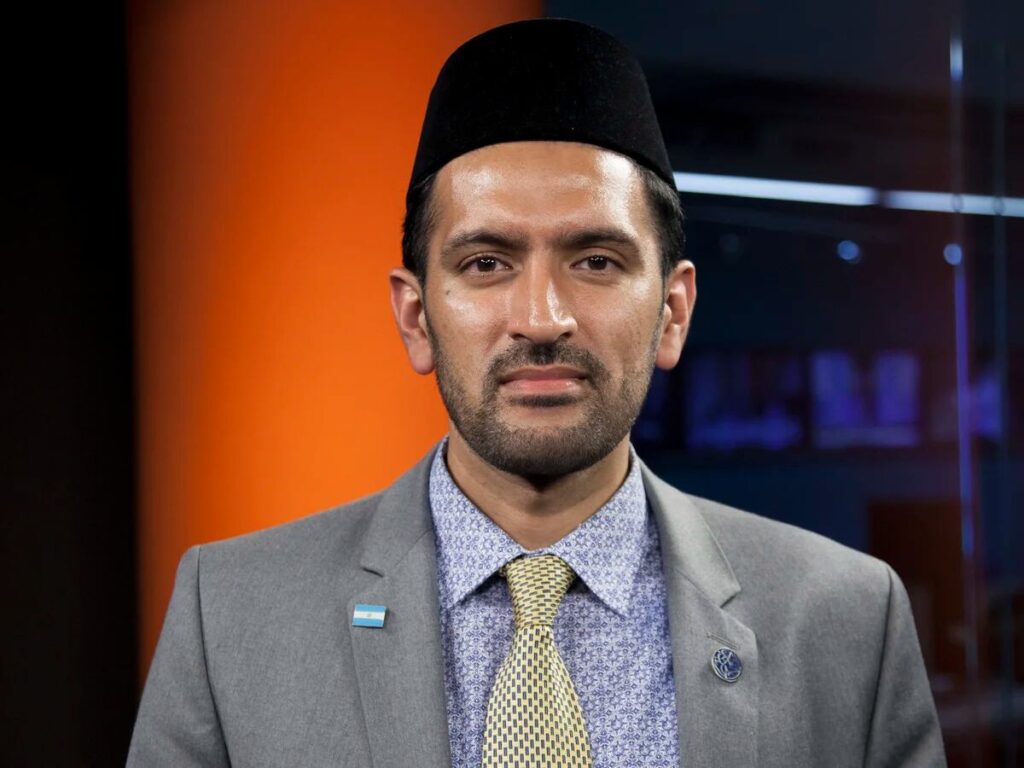Marwan Gill, a British-trained Islamic theologian, reflects on the wave of violence that is being unleashed in the country in the wake of recent racist events.
The murder of three girls in Southport, in the north of the UK, sparked the worst riots on the streets of the UK in recent years. Several far-right organisations used this tragedy to agitate against migrants in general and Muslims in particular. False propaganda was spread that the attacker was a Muslim and that he was an illegal immigrant, although the British authorities denied both claims. The killer was in fact a young Englishman, the son of Rwandan parents, and from a Christian family. No one would associate this murder with Christianity, just because the killer comes from a Christian family. However, I doubt that the British media would have acted with the same consistency if the killer had been a follower of Islam.
“I doubt that the British media would have acted with the same consistency if the killer had been a follower of Islam”.
However, this clarification about the killer did little to persuade racist and Islamophobic protesters. Some of the most serious episodes occurred when the hundreds of rioters attacked mosques or tried to set fire to places where asylum-seeking groups and even children were housed. The current wave of violence reveals once again the dangerous power of hoaxes in combination with social media.
In my case, I was born in Europe and I am the son of immigrants, I understand and support any political debate regarding immigration and the control of the borders themselves. But in no way do I support the use of this discussion to attack migrants and use them as a scapegoat for our socio-economic problems. As an Islamic theologian, I was trained in the UK and welcome any conversation that surrounds the doctrines of a creed or faith. But we cannot fall into the fallacy of attributing an individual’s crime to an entire religion.
Indeed, one adverse effect of the war in the Middle East has been a significant increase in both Islamophobia and Judeophobia. What worries me least as a believer is the hatred coming from extremist quarters. On the contrary, I am alarmed by the complicity and passivity of the ‘moderates’, because they have allowed the spread of hatred in our societies. The most current example is the politician Robert Jenrick, who is not a member of an extremist party, but belongs to the Tory Conservative party, which has governed for the last decade. In a televised interview, he publicly called for a ban on the expression ‘Allahu Akbar’ on the streets of the UK. Unfortunately, this call is not an isolated case in Britain; there are many people in the West who define themselves in the ‘centre’ and hold the view that Islam is not compatible with their ‘Western’ values.
Islam is a guarantor of the sanctity of life and categorically condemns violence and terrorism.
Let me make it clear that the expression ‘Allahu Akbar’ (God is great) is the epicentre of Muslim identity and we repeat this phrase at least a hundred times every day. ‘Allahu Akbar’ is not a call for violence, but a call for peace, harmony and unity. ‘God is great’ means glorifying your Creator by loving all His creation, regardless of religion, colour or ethnicity. Islam is a guarantor of the sanctity of life and categorically condemns violence and terrorism.
However, amidst the tide of anti-immigrant and Islamophobic violence, the other reality of British society also manifested itself: thousands of people took to the streets to counter the protests of the far right and to express their support for Muslims. It is no coincidence that the UK is home to approximately 4 million Muslims, representing almost five percent of the total population.
It is no coincidence that the UK is home to approximately 4 million Muslims, representing almost five percent of the total population.
In the case of the Ahmadiyya Muslim Community, to which I belong and which I represent in Argentina, we have a very special bond with this nation. Due to the persecution against our community in several Muslim countries, our spiritual Khalifa resides in the United Kingdom and that is also where our current international headquarters is located. Many of our members chose this land as their new homeland because religious freedom has been and is one of the cross-cutting characteristics of British society. Just a few days before the brutal riots, I travelled to Surrey (on the southern outskirts of London) and participated in the international convention of the Ahmadiyya Muslim Community, called ‘Jalsa Salana’. Under the motto ‘Prayers for Peace, Voices for Peace’, more than 40,000 Muslims representing more than 100 countries gathered there for three days. This annual convention is the largest and most important of its kind in Western Europe.
In conclusion, Islamophobia is not the source of the problem, but a symptom. The root of the vice is hatred which sometimes turns into Islamophobia and sometimes into anti-Semitism, Christianophobia or other facets of discrimination. In the meantime, our motto ‘Love for all, hate for none’, which summarises all the precepts of Islam, could serve as a first step, both in the face of the unrest in the UK and in any other society where social peace is at risk.
Source: La Nación
















No Comments